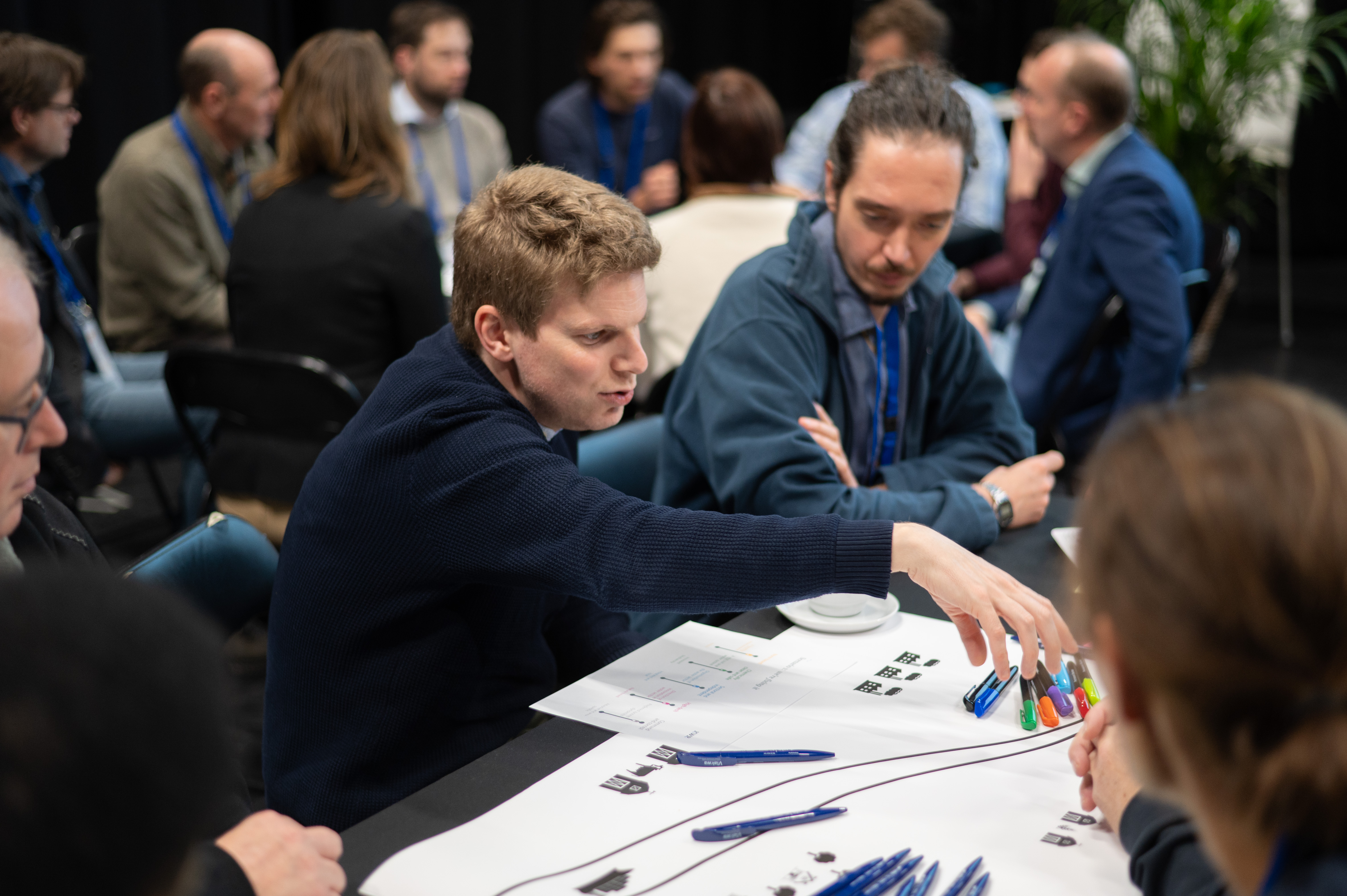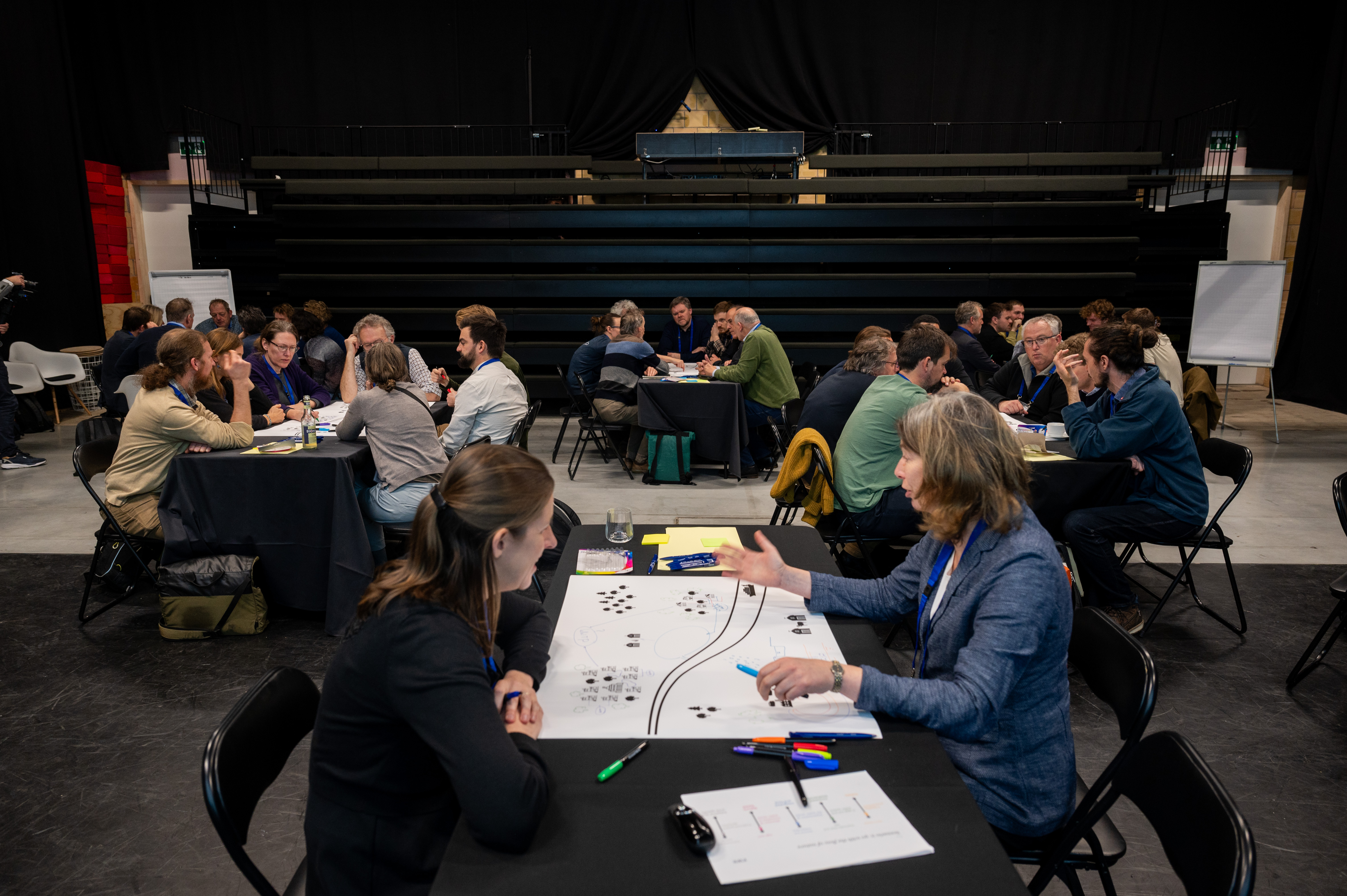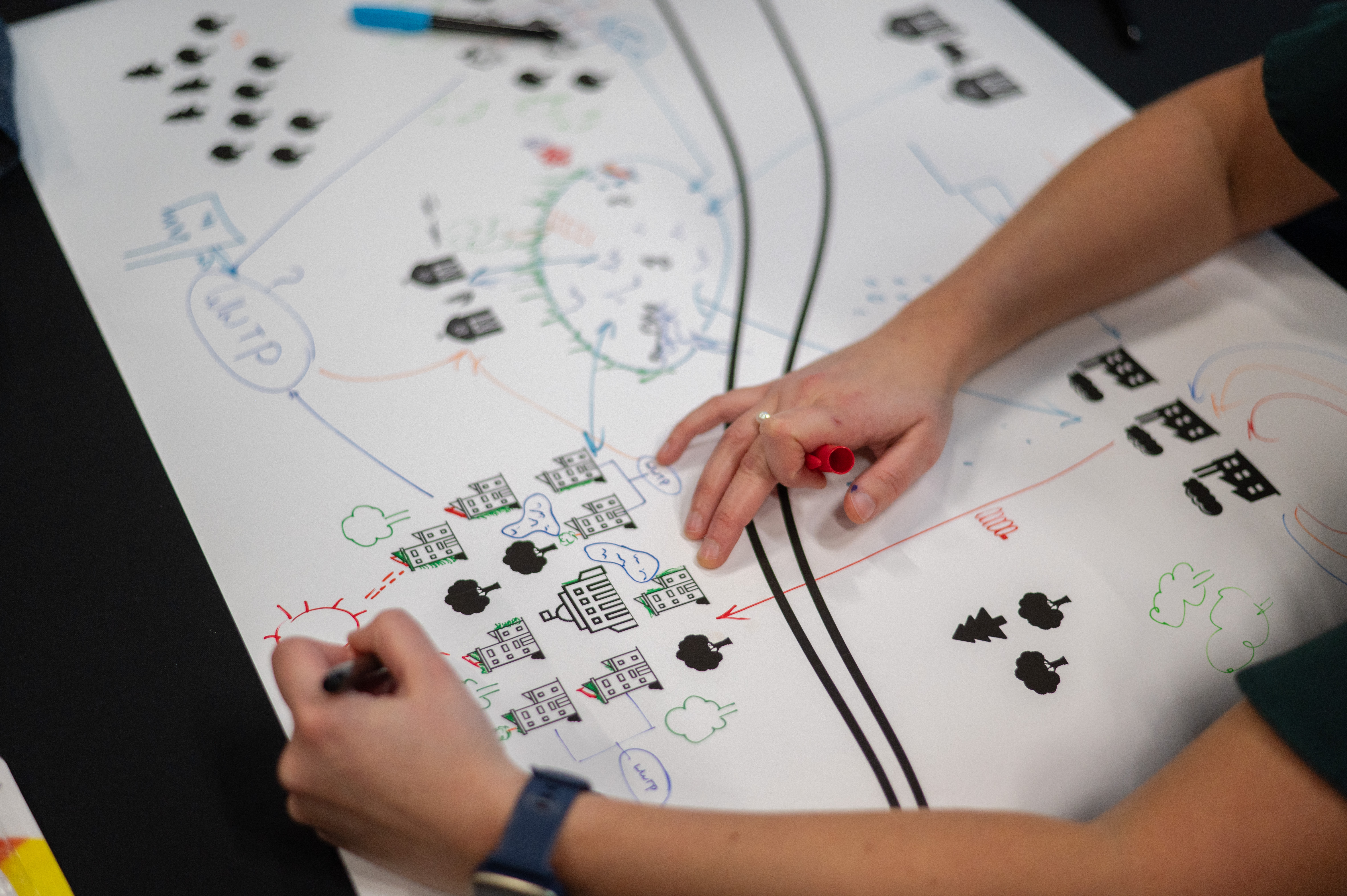What does the future of urban water look like? This question revolves around various challenges and dilemmas. How can we foster a healthy urban environment amidst escalating climate pressures? How can we grapple with differing perceptions of what constitutes a healthy environment and the strategies to achieve it? Just to name a few. During ANCHOR Kicks off event in December 2023, attendees were invited to participate in a workshop to scope their future of urban water.
To get the discussion started, participants engaged in an interactive exercise to ‘vote with their feet' regarding five dilemmas, each offering a distinct perspective on the future of urban water. By choosing a position in the room, they demonstrated their preference for one side of the dilemma. For example: do you prefer either high-tech solutions or nature-based approaches, or opt for a blend of both by standing in the middle of the room? Depending on their stance, attendees were prompted to motivate their choice. After, participants repositioned to reflect the current state of affairs, visually illustrating the gap between reality and their desired future.

The workshop then shifted to designing future urban water systems under two scenarios. The first, labeled 'We're Fixing It', envisioned a future where a command-and-control strategy, backed by high-tech solutions, is employed to cultivate a healthy urban environment. The second scenario, 'Go With the Flow of Nature', advocated a nature-based, adaptive approach. Participants conceptualized an urban (and regional) water system reflecting their chosen scenario, and illustrated their ideas on a paper map of an imaginary urban region.

In conclusion, each group had the opportunity to thoroughly discuss the designs of their peers. Common themes emerged, notably the imperative to innovate in integrating multiple functions and to use water more judiciously, recognizing its value as a precious and finite resource.

Curious to know more?
For any questions about this article you can reach out to the author, Henk-Jan van Alphen (KWR water research institute, NL).
